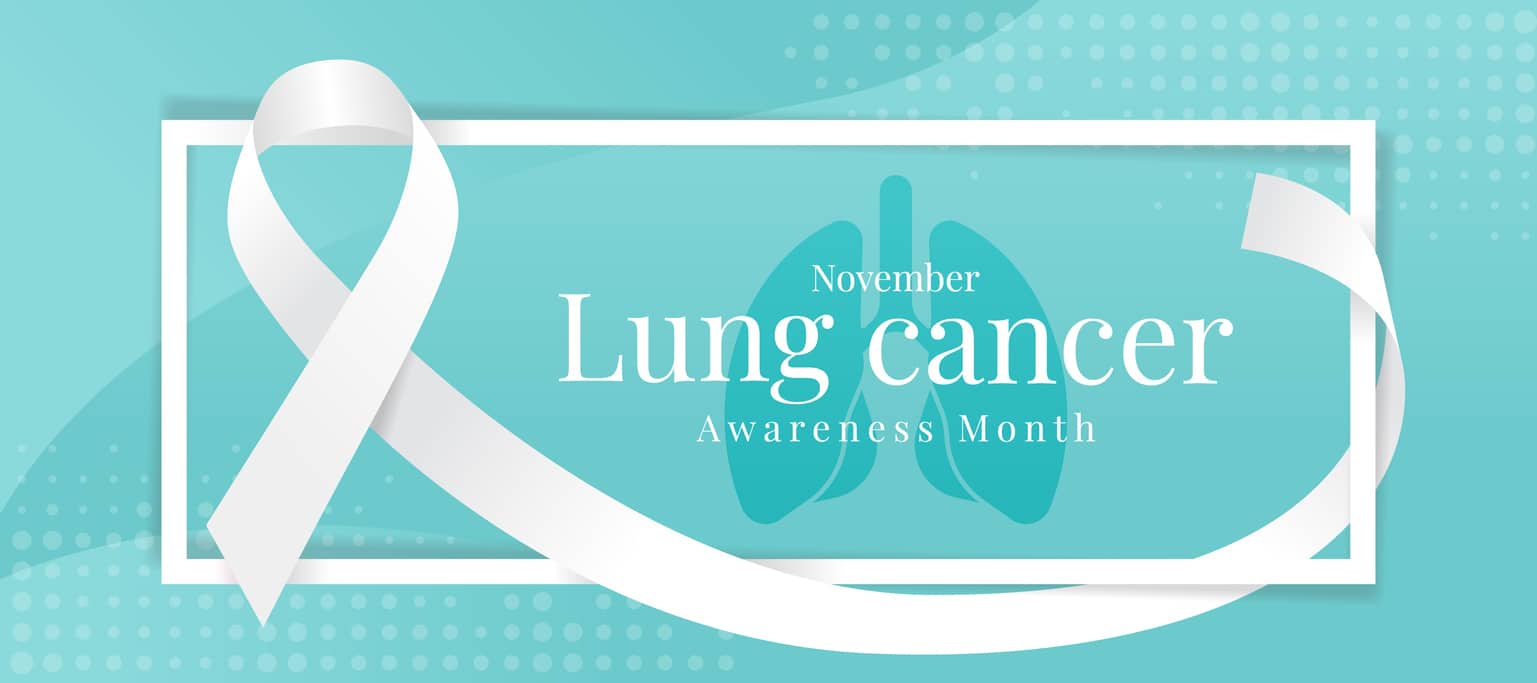Lung Cancer Awareness Month
November is Lung Cancer Awareness Month. During this annual observance, the American Lung Association utilizes their LUNG FORCE initiative to unite those impacted by lung cancer and their caregivers to stand together against lung cancer. Through education, advocacy and research, they work to ensure fewer people are diagnosed and those living with lung cancer live longer.
Everything You Need to Know about Lung Cancer
Lung cancer happens when cells in the lung change or mutate. Unlike normal cells, cancer cells grow uncontrollably and cluster together to form a tumor, destroying healthy tissue around them. Most often, this happens due to exposure to dangerous chemicals that we breathe. However, lung cancer can happen in people with no known exposure to toxic substances. Listed below are all the lung cancer statistics you need to know:
- Lung cancer is the leading cause of cancer deaths in the U.S., and about every two and a half minutes, someone in this country learns they have the disease.
- Smoking is the number one cause of lung cancer. It causes about 90% of lung cancer cases.
- Lung cancer is by far the leading cause of cancer death , making up almost 25% of all cancer deaths.
- It is estimated that there will be 236,740 new cases of lung cancer in 2022 and 130,180 deaths.
- Most people diagnosed with lung cancer are 65 or older
- The number of new lung cancer cases continues to decrease each year, mostly due to more people quitting smoking.
Reduce Your Risk
Though lung cancer is common, many people don’t know much about it or are afraid to learn. Symptoms of lung cancer usually do not appear until cancer cells spread to other parts of the body and prevent other organs from functioning properly. At this point, it is harder to treat lung cancer. That is why screenings and early detection is so important! In addition to regular screenings, follow the tips below to reduce your risk:
- Don’t start smoking
- Quit smoking if you smoke
- Avoid secondhand smoke
- Test your home for radon. You can do this with inexpensive, easy-to-use test kits sold at hardware stores.
- If you are exposed to dust and fumes at work, ask your health and safety advisor how you are being protected.
- Help fight pollution. Work with others in your community to clean up the air you and your family breathe.
To learn more, visit the American Cancer Society or the American Lung Association. If you are an employer looking to join in on the cause, check out our previous blog post about initiating a smoking cessation program this month!








